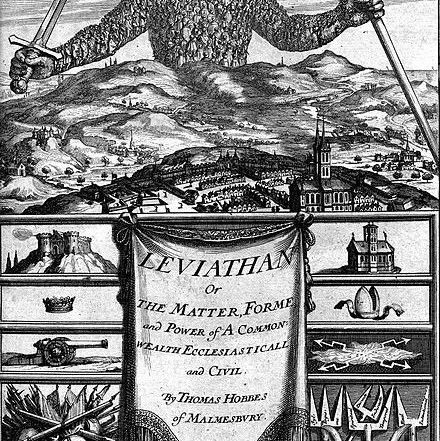Read History with Jack 38 - The Natural Law
From the past to the present, with the arising of villages, towns, and vast cities, Homo sapiens have always tried to form new, more complex social structures. These artificial structures cannot always be perfect, and the defects always cause grave problems that can be devastating. For example, the collapse of Athenian democracy after Pericles died during the Peloponnesian War led to the sudden, ultimate decline of the Athenian Empire, the collapse of the monarchical Roman Empire led to the emergence of a dark age that would last for a thousand years, and the continuous civil wars in the 17thcentury in Britain between different factions, between the Crown and the Parliament caused a political catastrophe that would take years to amend. However, from my point of view, it is exactly during and after these periods of the breakdown of political systems that the thinkers of history contemplated the source of the issue and tried to rebuild a better system. Aristotle wrote Politics to attempt to save the rapid decline of Athens. Saint Augustine created masterpieces such as The City of God to show the inner illnesses of the Roman Empire, and offer a potential way out of the dilemma. Thomas Hobbes and John Locke addressed the intrinsic problems that lie after the English Civil Wars from 1642-1651 with works like The Leviathan and The Two Treatises of Government. In all of these writings that aim to salvage ruining sovereignties, the brilliant minds always explored and observed inwards to our human nature to seek a solution, as they believe nature has the answer. Here is when the concept of “natural law” emerges, as they have the mission to assist in reconstructing a societal or political structure. A “natural law” is a rule derived directly from human nature, and based on values and moral rules fundamental to humanity that can be observed in our daily lives. These special laws guide us on morality, proper behavior, and developments in society. They can be used to reflect reality and see the underlying issues in an artificial scheme in a lucid manner.
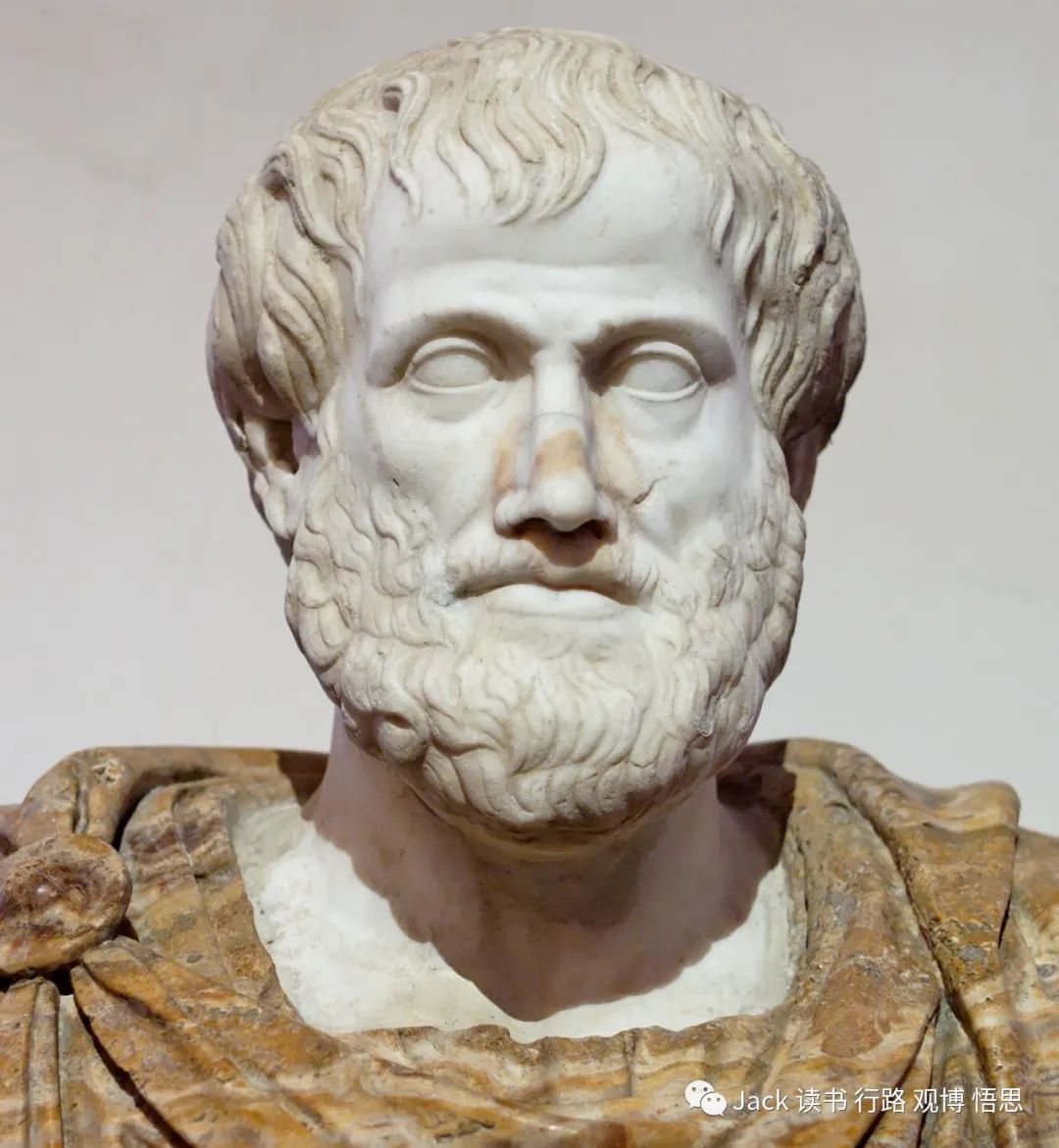
(Bust of Aristotle)
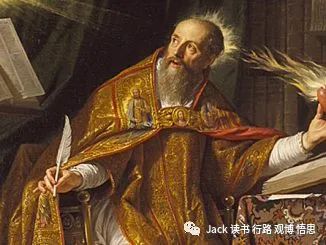
(Painting of St. Augustine of Hippo)
In the classical age, the idea of “natural law” already existed. Aristotle, more than 2300 years ago, claimed that there was a natural justice everywhere with the same force and “not existing by people thinking this and that”. Additionally, he reasoned that what was “just by nature” was not usually “just by law”, identifying “natural laws” and “human laws” as distinct systems of rules and guidelines. By pointing out the existence of natural rules, Aristotle tried to restore a sense of natural justice as well as morality to the degenerating Athenian Empire. More than 700 years later, at the brink of the demise of the Western Roman Empire and consequentially the classical Western world, Saint Augustine would borrow “natural laws” again, this time with the combination of Christian views, to reveal the ailments within the Roman Empire and design a possible better system. Augustine argued that there is an “eternal law” that is inscribed into everyone created by the creator or God. The “eternal law” is God’s perfect plan for the world, and it instructs every organism on its moral and social behaviors. By constructing this system of laws, St. Augustine was able to diagnose the moral and spiritual issues with the dogmas of traditional Roman religion, and reason how that caused the decay of decency in the Romans.
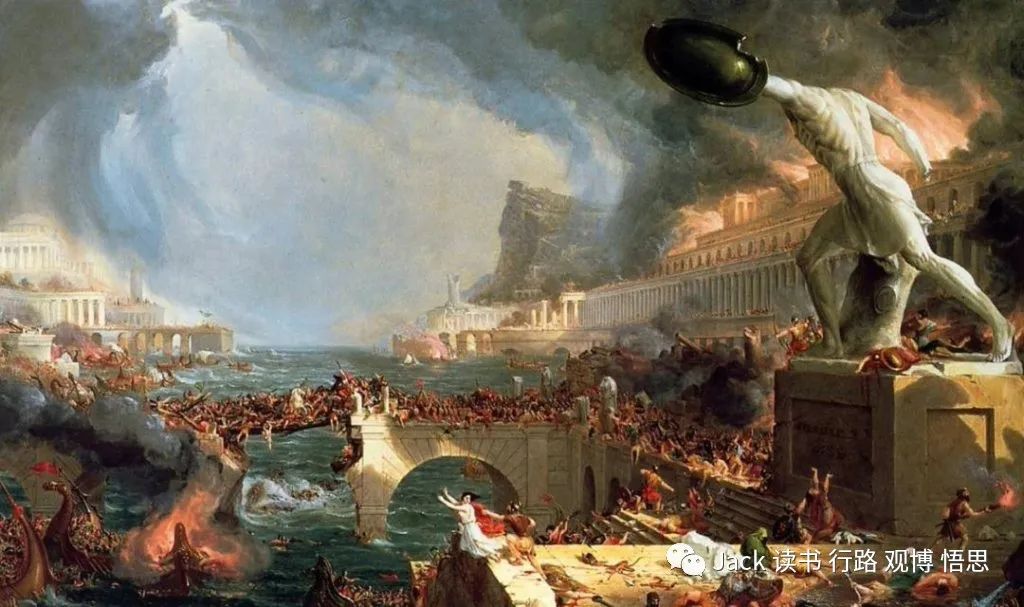
(Painting of the Fall of the Western Roman Empire)
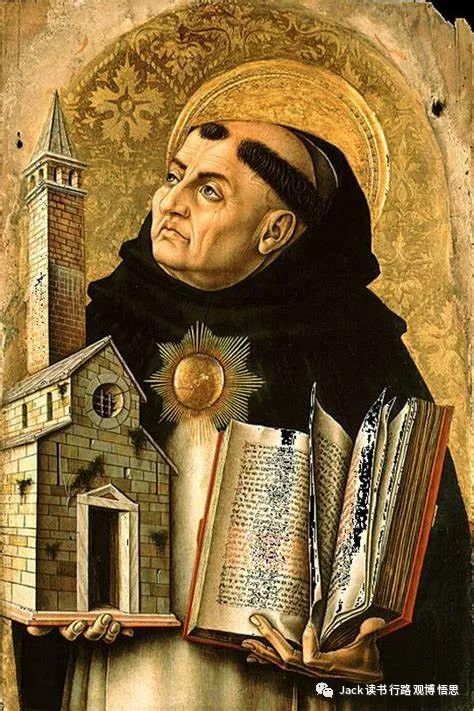
(Painting of St. Thomas Aquinas)
With the fall of the Western Roman Empire in 476 C.E., Europe entered the Middle Ages. We always refer to the Middle Age as a dark age when the light of civilization faded away. However, this reference is not totally true. During this period of time, Christianity reached the apex of its power and was able to influence classical ideas about natural law. The Middle Age is exactly when St. Thomas Aquinas was born. St. Thomas Aquinas can be regarded as the founding thinker of a systematic set of theories about natural laws. He combined the thoughts of classical philosophers and lawgivers with Christian beliefs and doctrines mentioned in The Bible. Aquinas divided the realm of law and rules into four sections. The first is the “eternal law”, which has a definition and purpose similar to that devised by St. Augustine. The “eternal law” is the premium model God has created for the world; it is a direct representation of the orders of nature. The second section is the “natural law”. Aquinas reasoned that the “natural law” is a branch of the “eternal law” that is inscribed into the hearts of every one of the created. Aquinas claimed that the purpose of the “natural law” is to give people the power to distinguish between good and evil, between what is right and what is wrong. He stated, “the light of reason is placed by nature [and thus by God] in every man to guide him in his acts”. The third type of law is called the “human law”. The “human law” is a set of artificial rules produced by people themselves. The rules should be derived from the natural laws and should be used to punish any evilness that is displayed. Finally, the “divine law” is another part of the “eternal law”, and it is not the product of logical reasoning but rather from inspirations from supernatural power. Overall, Aquinas’ classification of the laws in the world, including “natural laws”, would be the foundation for the development of modern-day views of what “natural law” is.
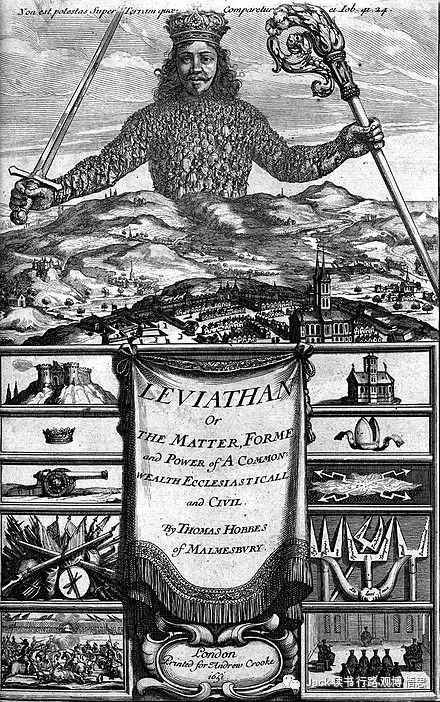
(The Illustrations on the Title Page of The Leviathan)
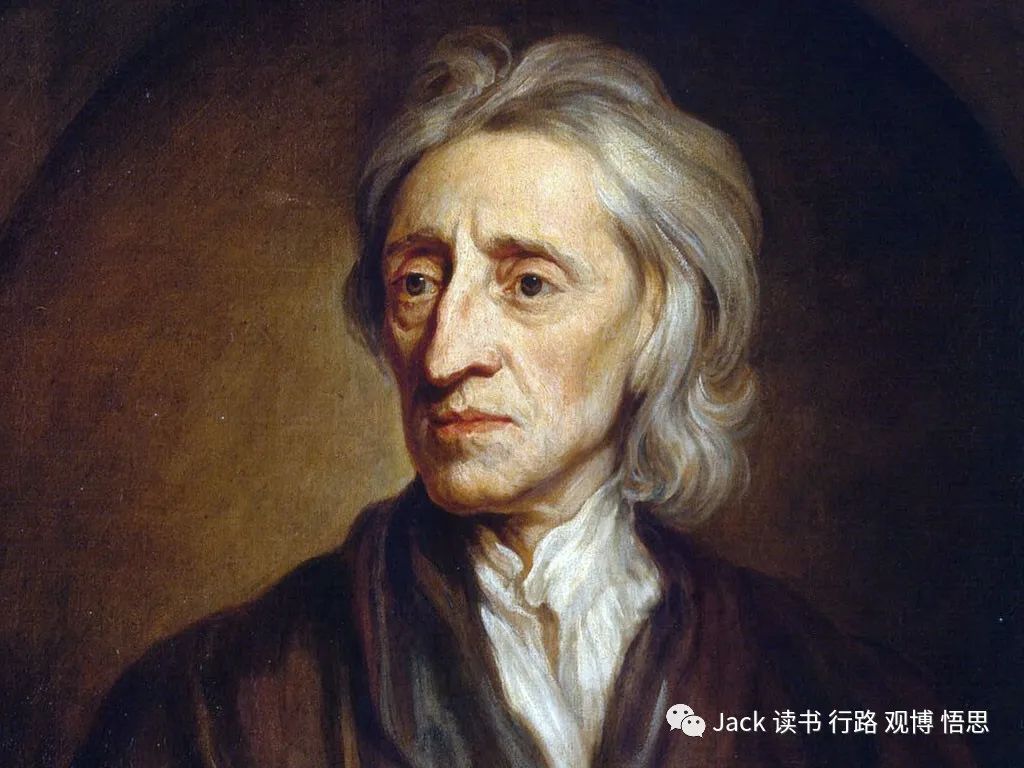
(Painting of John Locke)
After the Middle Ages passed with the fall of Constantinople in 1453, Europe experienced a sudden surge of novel views on the world and on humankind. In the 17th century, to try and resurrect England from a series of civil wars between the Crown and the Parliament, Thomas Hobbes, one of the greatest thinkers in the history of England, wrote The Leviathan. In this political masterpiece, Hobbes provided a thorough analysis and construction of what “natural law” is under his opinion. Hobbes, after looking at human nature thoroughly, concluded that natural law can only exist when people reach a point of the agreement through logical thinking that this is in their own self-interest, as in a natural state, humans will only care for themselves and their greed will force them to declare war against another. The “natural law” is a “precept or general rule [that] is found out by reason”, and its tenet is that everyone has the obligation to protect or preserve themselves. John Locke more or less inherited Hobbes’ views. In Locke’s reasoning, under a natural state, although there is no overarching monarch, it is still not a totally free state, and there are still natural laws governing. Locke believed that a “natural law” is a law that everybody can discover and observe with their own human nature, and set it as a premise for all of their obligations. To wrap up, Hobbes and Locke argued that natural law is a type of rule that is only discoverable via logical reasoning and the attributes of a preexisting human nature. Based on such arguments, Hobbes and Locke built new governments on paper that emphasize the relationship between the individual and the state.
Overall, from the examples provided above, we can deduct, that in order to seek solutions to the mind-boggling issues that are extant in every artificial government, theorists and thinkers and lawgivers always look back to humanity and nature to find inspiration. Just as Friedrich Hayek once argued, the best rules are the most natural rules. We should always try not to forget nature and that we are organisms born from nature, and thus are under the subject of natural patterns or rules. To remember and tap into nature will prove to be crucial for an age where artificial rules and intelligence have been increasingly dominating.
WORKS CITED
Britannica, The Editors of Encyclopaedia. "Natural law." Encyclopedia Britannica, 13 Aug. 2019, https://www.britannica.com/topic/natural-law. Accessed 16 June 2021.
Hobbes, Thomas. Leviathan: Volume One. United States, Pacific Publishing Studio, 2011.
Locke, John. Two Treatises of Government. Whitefish, Kessinger Publishing, 1988.
PICTURES CITED
https://www.universetoday.com/145029/who-was-aristotle/
https://www.catholicworldreport.com/2019/03/12/yours-is-the-wisdom-pagans-doctors-and-fathers/
https://www.stephenhicks.org/2015/11/14/st-thomas-aquinas-on-whether-sinners-should-be-killed-or-heretics-tolerated/
https://www.alamy.com/stock-photo-thomas-hobbes-title-page-of-leviathan-1652-english-moral-and-political-83367004.html
http://www.danilobreschi.com/2016/05/24/john-locke/comment-page-1/
从过去到现在,随着村庄、城镇和城市的出现,智人总是试图形成新的、更复杂的社会结构。这些人工结构不可能总是完美的,而缺陷总是造成严重的,甚至毁灭性的影响。例如,伯罗奔尼撒战争中伯里克利死后,雅典民主制度的崩溃导致了雅典帝国的突然的衰落;公园476年,君主制西罗马帝国的崩溃导致了一个持续大约一千年的中世纪;17世纪英国不同党派、王室与国家议会之间的持续内战造成了一场需要多年才能弥补的政治灾难。然而,在我看来,正是在这些政治制度崩溃时与崩溃之后,历史上的思想家们才真正思考了问题的根源,并试图重建一个更好的制度。亚里士多德写了《政治学》,试图挽救民主雅典的迅速衰落。圣奥古斯丁创作了《上帝之城》等杰作,展示了罗马帝国的内在病症,并提供了摆脱困境的潜在途径。托马斯-霍布斯和约翰-洛克通过《利维坦》和《政府两论》等作品解决了1642-1651年英国内战后的内在政治制度问题。在所有这些旨在挽救的著作中,这些杰出的头脑总是向内探索和观察我们的人性,以寻求解决方案,因为他们相信自然界总有答案。这时,"自然法 "的概念出现了。它们的任务就是协助重建社会或政治结构。一则 "自然法 "是直接来自于人类本性的规则,它的基石在于我们日常生活中可以自然观察到的人类基本价值观与道德行为准则。这些特殊的法律在道德、适当的行为以及在社会发展方面为我们所有人提供指导。它们可以用来反映现实,并以一种清晰的方式揭示人工制度之下的根本问题。
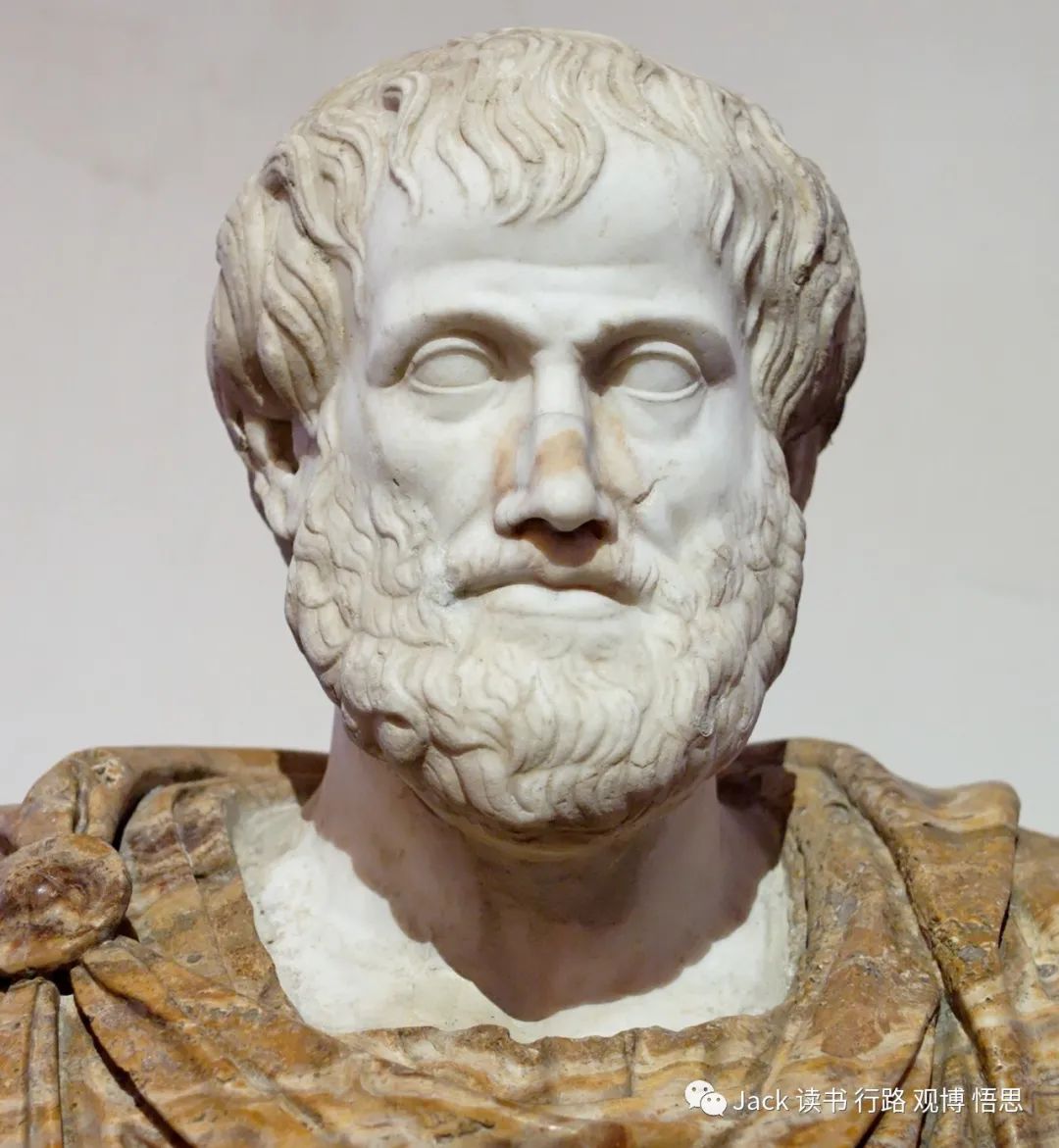
(亚里士多德头部雕刻)
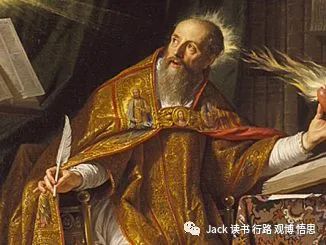
(西波的圣奥古斯丁)
在古典时代,"自然法 "的概念已经存在。2300多年前,亚里士多德声称,到处都有一种具有同样力量的“自然正义”。这种正义"不是靠人们想这想那而存在",是一种自然秩序。此外,他还推断,"自然的公正 "通常不是 "法律的公正",将 "自然法 "和 "人类法律 "确定为不同的规则和指导体系。通过指出自然规则的存在,亚里士多德试图为精神堕落的雅典帝国恢复一种自然正义和道德感,从而使民风与政治制度重回正轨。700多年后,在西罗马帝国乃至西方古典世界的灭亡边缘,圣奥古斯丁将再次借用 "自然法则",这次是与基督教观点相结合,以揭示罗马帝国内部的严重病源,并设计一个可能的更好的系统。奥古斯丁认为,有一个 "永恒的法则",被创造者或上帝刻在每一个被造物中。这条 "永恒的法则 "是上帝对世界的完美计划,它指示每个有机体的道德和社会行为。通过构建这个法律体系,圣奥古斯丁努力诊断出罗马人原本宗教的种种漏洞,并探讨这是如何导致罗马人的道德和精神层面出现沦丧。

(公园476年西罗马帝国的毁灭)

(圣托马斯阿奎那)
随着公元476年西罗马帝国的灭亡,欧洲进入了中世纪。我们总是把中世纪称为文明之光逐渐消失的黑暗时代。然而,这种提法并不完全正确。在这一时期,基督教达到了其力量的顶点,并能够影响关于自然法的古典时期的思想。中世纪正是圣托马斯-阿奎那出生的时候。圣托马斯-阿奎那可以被认为是一套系统的自然法理论的创始思想家。他将古典哲学家和法学家的思想与《圣经》中提到的基督教信仰和教义相结合。阿奎那将法律和规则的领域分为四个部分。第一部分是 "永恒的法律",它的定义和目的与圣奥古斯丁的类似。永恒的法律 "是上帝为世界创造的高级模式;它是自然秩序的直接代表。第二部分是 "自然法"。阿奎那推断,"自然法 "是 "永恒法"的一个分支,它被刻在每个被造物的心中。阿奎那声称,"自然法 "的目的是让人们有能力区分善与恶,区分什么是正确的和什么是错误的。他说,"理性之光是由自然[因而也是由上帝]放在每个人身上的,以指导他们的行为"。第三类法律被称为 "人法"。人法 "是一套由人们自己制定的人为规则。这些规则应该来自于自然法则,应该用来惩罚任何表现出来的邪恶行为。最后,"神法 "是 "永恒的法律 "的另一部分,它不是来自逻辑推理的产物,而是来自超自然力量的启发。总的来说,阿奎那对世界上的法律的归类、整理、发挥,包括 "自然法 ",将成为现代人对 "其看法的发展基础。

(《利维坦》标题页插画)

(约翰·洛克)
中世纪随着1453年君士坦丁堡的陷落而过去后,欧洲经历了一场古典思想和关于世界和人类的新颖的观点的突然涌现。在17世纪,为了试图使英国从王室和议会之间的一系列内战中复活,英国历史上最伟大的思想家之一托马斯-霍布斯写了《利维坦》。在这部政治巨著中,霍布斯对他认为的 "自然法 "进行了彻底的分析和构建。霍布斯在彻底研究了人性之后,认为只有当人们通过理性而达成一致,认为这符合自己的利益时,自然法才能存在,因为在自然状态下,人类只会关心自己,他们的贪婪会迫使他们向他人宣战。"自然法 "是一种 "通过理性发现的戒律或“一般规则",其宗旨是每个人都有义务保护或保存自己。约翰-洛克或多或少继承了霍布斯的观点。在洛克的推理中,在自然状态下,虽然没有统领一切的君主,但仍然不是一个完全自由的状态,仍然有自然法则在支配着。洛克认为,"自然法 "是每个人都能以自己的人性发现和遵守的法则,并将其作为自己所有义务的前提。总而言之,霍布斯和洛克认为,自然法是一种只有通过逻辑推理和预先存在的人性的属性才能发现的规则。基于这样的论点,霍布斯和洛克在书中为英国构建了新的政府,提出并强调了个人与国家之间的微妙关系。
总的来说,从上面提供的例子中,我们可以推断出,为了寻求每个人工政府中存在的令人费解的问题的解决方案,理论家、思想家和法律制定者总是回顾人性和自然来寻找灵感。正如弗里德里希-哈耶克曾经认为的那样,最好的规则是最自然的规则。我们应该始终努力不要忘记自然,不要忘记我们是诞生于自然的有机体,因此永远活在自然模式中,受到自然规则的指导。在一个人工智能与规则逐渐占据主导地位的时代,记住并利用自然与其成果将被证明是至关重要的。
- 本文标签: 原创
- 本文链接: http://www.jack-utopia.cn//article/437
- 版权声明: 本文由Jack原创发布,转载请遵循《署名-非商业性使用-相同方式共享 4.0 国际 (CC BY-NC-SA 4.0)》许可协议授权
